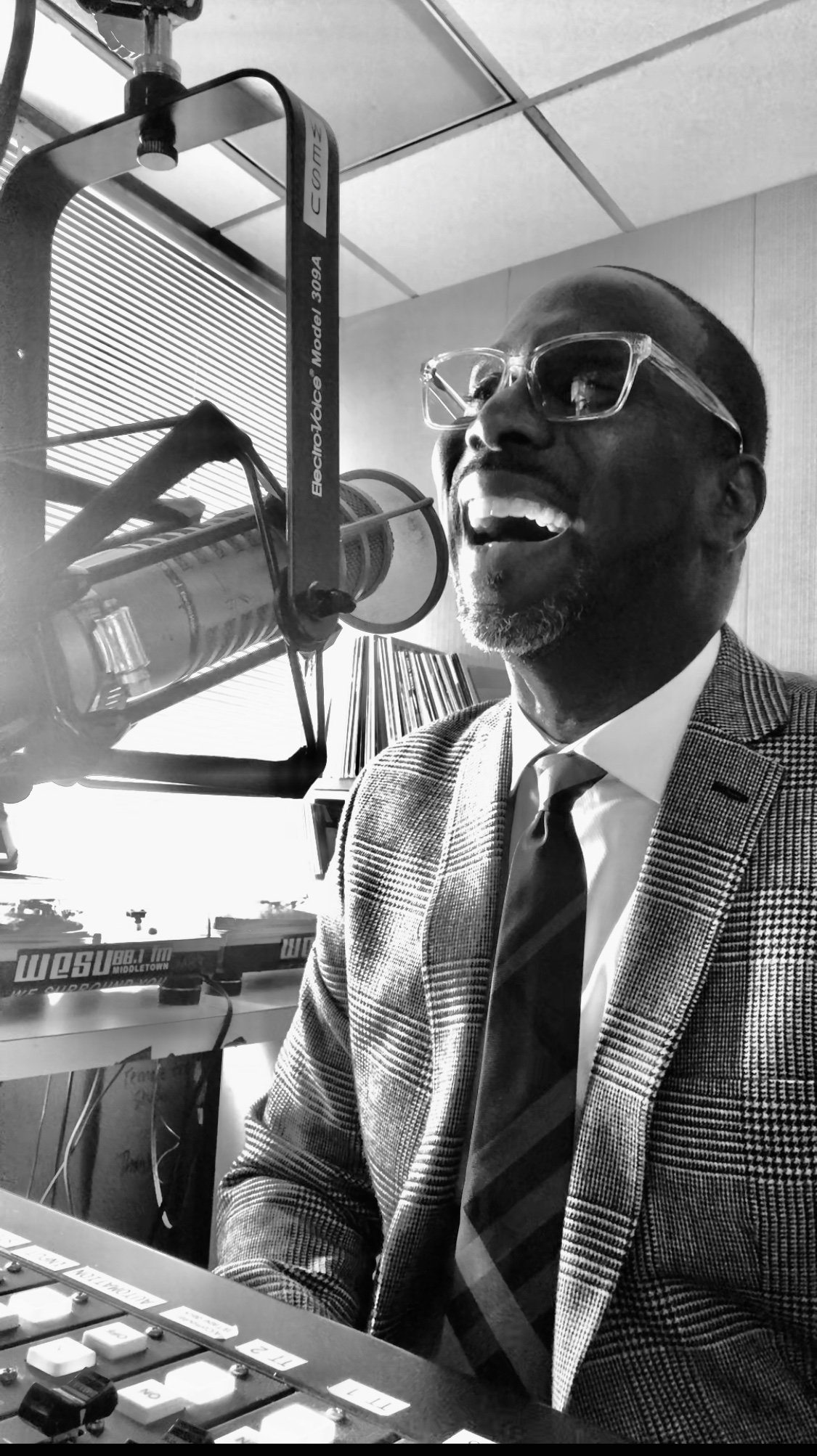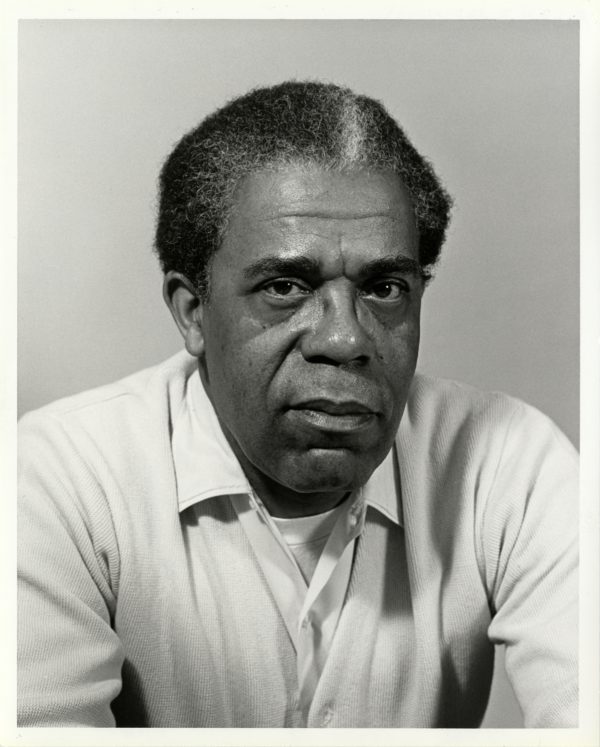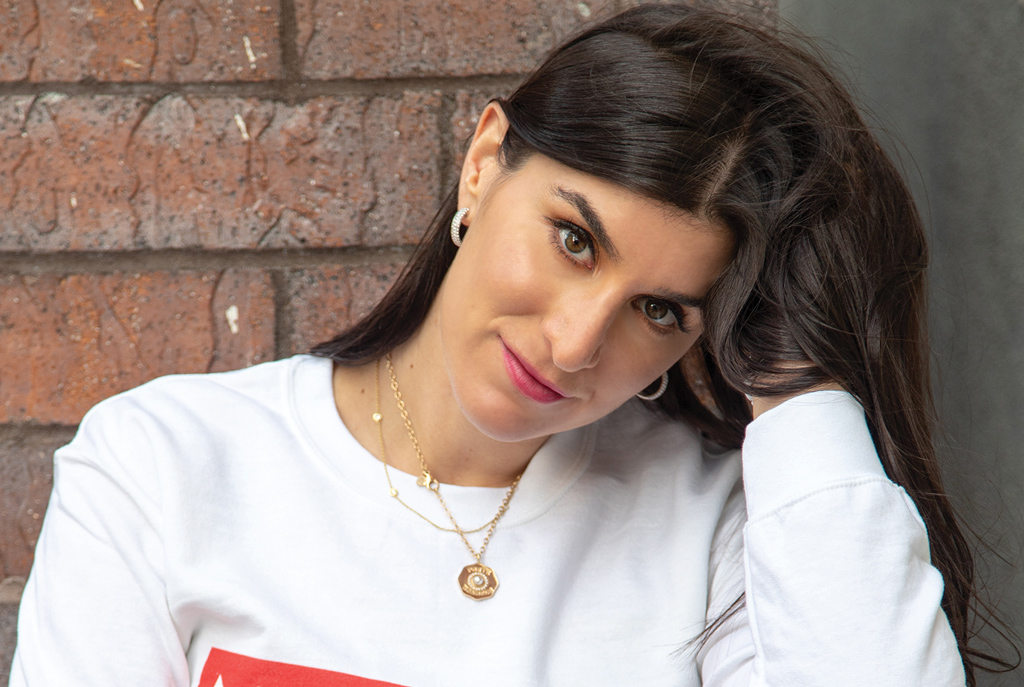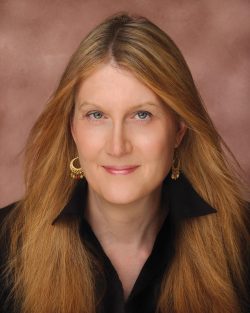Tuned IN

Question: Is WESU-FM, 88.1, the oldest college radio station?
Answer: Maybe. Station Manager Benjamin Michael, who has been on the job since 2005 (and affiliated with the station since 1997), helps explain:
“There were college stations before the 1930s,” he says. “UConn, for example, had one. So, I would never say we’re the oldest college radio station. But theirs was part of the agricultural radio network. Student radio—student-owned-and-operated radio—started at Brown in 1936. And Wesleyan’s was the second in that model. And now Brown’s FM radio is gone; they’re an internet-only station. I often say that we are the last of the original student-owned and student-operated stations. That’s the point of discernment.”
So there you have it. WESU is one of the oldest, having just celebrated its 80th anniversary in 2019. It all began in a dormitory in 1939 with sophomore Arch Doty Jr. ’42, who arrived back on campus that fall with a radio transmitter he had built at home the previous summer. “Using a turntable, 78 rpm records, a microphone, the transmitter, and an antenna wire hanging out of his window, student-run radio at Wesleyan hit the airwaves” (chronicled by then-Archivist Leith Johnson in Wesleyan Magazine 2014, Issue 1).
To accommodate a wider audience, intrepid students strung a network of wires through Wesleyan’s tunnel system, ensuring the entire campus could tune in. Not long after, President James McConaughy toured the popup station, approved it, and WES-AM (as it was then called) sent out its first official broadcast on November 9, 1939.
WESU is a tradition of independence and community; a place to hone one’s skills and establish a voice. For the past decade-plus, Benjamin Michael has added both stability and institutional memory in serving as the station’s first and only full-time employee. He has taken on the compiling and documenting of WESU’s ephemera, including an oral history from Arch Doty Jr., which Michael has archived on Soundcloud. He also proudly preserves a three-ring binder filled with notes from Doug Berman ’84, who served as the station’s programming director and would go on to a luminous career in public radio, introducing iconic shows such as Car Talk and Wait, Wait, Don’t Tell Me.
“[Students] showed that broadcast radio did not belong solely to the moneymakers,” recalled another voice from WESU’s early years, Howard Williams ’48. “At school and university campuses, they bumbled their way into a new sphere of broadcasting that allowed new ideas to be examined without the test
WESU’s alumni are an accomplished bunch. Michael recalls Avery Trufelman ’13, now a producer for the prominent design podcast 99 Percent Invisible, saying she “knew what she wanted to do when she arrived here and saw WESU as a tool in her tool box and got the most out of it.” A postcard thumbtacked to Michael’s door is from Jesse Sommer ’05, a law school graduate who sends updates “home” to WESU whenever he deploys or returns from his job in the military.
“I function as archivist and den mother,” Michael jokes. “But seriously, I maintain these WESU relationships, as well as keep our sense of history and where we’re going. I want to keep our stakeholders connected.”
Sommer, he recalls, was particularly involved with the station after it was moved out of the Clark Hall basement into the second floor of the building on Broad Street that houses Red and Black Café. During this transition “important station documents, historical assets, equipment, music, and record shelves for the library of more than 200,000 albums” were unwittingly lost to the maws of waiting dumpsters, says Michael. “The move nearly took all the wind out of the sails that keep WESU moving forward.” Shoring up the history of the initial intrepid spirit that founded the station has been incentive for much of his archival work since then.
He recalls that this era was also a period of flux on campus, when student groups and the administration found themselves at odds. When the University announced a plan to resolve both their fiscal and organizational concerns about WESU by bringing on NPR/WSHU-FM as a partner, Michael recalls Sommer, newly arrived on campus, was “one of a few student and community leaders who organized and came up with a plan to get the University to address what was seen as their lack of support, negotiating a deal that represented student and community volunteer interests.”
Now, 15 years later, WESU’s affiliation with WSHU provides simulcast for some news and programming from National Public Radio, with staples like Morning Edition and the BBC World News. Additionally, a portion of WSHU fundraising helps to support the station, although semi-annual WESU fundraising campaigns remain essential. While some miss the utter independence of previous decades, WESU’s beat goes on.
At the heart of the maverick station, a combination of 80 student and 60 community volunteers fills its airwaves weekly with original programming. These numbers don’t include additional one-off programming, such as that arranged by Yaniv Feller, Jeremy Zwelling Assistant Professor of Jewish Studies, for Refugees & Exiles: Religion in the Diaspora, his service-learning class last fall. For that, each student presented a radio show analyzing a selected refugee crisis. This one slot hosted more than a dozen voices over the semester. Michael hopes to provide more of these opportunities between the station and academic areas.
“Wesleyan doesn’t have a formal communications curriculum,” he says. “But we do have WESU. College radio has proven to be incredibly important for opening minds and providing access to a lot of music and ideas that the industry might not otherwise have chosen to promote.”
As an example, Michael recalls his childhood in the 1980s, where he had to tune in to stations like 88.1 to get hip-hop because it was considered “underground music.” As part of the station’s 80th anniversary, WESU brought in Bobbito Garcia ’88, who went on from Wesleyan to host a hip-hop show on New York University’s station that is credited with giving many hip-hop artists their first break.
“In training, we try to impress on our staff: Don’t just come here with music you already know is cool,” Michael says. “You have to take the time to listen to the unknown artists on these shelves. People are looking for music they haven’t heard. They’re looking for new perspectives in public affairs. That’s what we offer.”
Clifton Watson, director of the Jewett Center for Community Partnerships, provides a visual to that audio variety. He recalls the event that capped off WESU’s 80th anniversary celebration held in Daniel Family Common last December: “In walks this crowd of 100-plus people of all ages, all ethnic and racial backgrounds, all social and economic statuses. It was one of those rare moments where we’re able to see everyone who was connected to WESU in one physical space. And it was really, really telling about the impact of this one college radio station in fostering local community.”
[Photo caption:] “GOOD MORNING, MIDDLETOWN!” Marichal Monts ’85 has been hosting a gospel show on WESU-FM since he was a student. (Photo Courtesy Marichal Monts ’85)



